One of the funniest—and by “funniest” we really mean “soul-crushing”—things about COVID Russia is that the country’s benevolent politicians and public health authorities have apparently decided it’s simply not necessary to disclose the data being used to radically transform the social contract between government and citizens:
“We need to introduce digital health IDs that will completely change society forever, in order to protect vacant beds in our sepsis-filled hospital wards.”
“Okay, but how many empty beds are there, right now?”
“You don’t need to know that.”
It’s possible there are regions in Russia that are more forthcoming than others but in Moscow there’s a very strict “don’t ask, don’t tell” policy concerning relevant COVID figures and statistics.
We wrote about this audacious lack of transparency some months ago:
It’s true that millions of people are being asked to make personal sacrifices to protect hospital resources. But do they really deserve access to regularly updated figures showing how many beds have been reserved for COVID patients, and what percentage of them are currently occupied? Should Muscovites be entitled to all relevant information on this subject, so that they can examine this apparently life-altering data at any time of their choosing? That seems like an excessive and arbitrary request unless you are seriously suggesting health authorities and politicians are somehow not infallible.
Indeed, Muscovites can rest easy knowing that policies dictating the most serious matters of life are not in any way reliant upon mystical-like devotion to closely-guarded statistics.
Slightly off-topic, but we once met a man on a train to St. Petersburg who belonged to a heretical sect of the Rosicrucian Order that believed the universe revolves around the number of available bananas in Bangkok, Thailand. He patiently explained to us that everything he did was directed towards ensuring there was an adequate supply of elongated, yellow fruit in the city. But when we pressed our acquaintance to disclose how many Bangkok bananas were uneaten at the present moment, he admitted that he did not know the number—only the Thai Grocers Association had this information, and it was only dispensed periodically in small, hard-to-contextualize morsels. We later learned he was a lunatic who had escaped from a nearby psychiatric ward.
These days, whenever a misled person on the internet extols the Russian government’s COVID measures, we immediately think of this:
People will say: this is a coincidence. They will say we can’t prove anything so it’s irresponsible to even suggest anything.
True, there is no way for us to verify how many confirmed Omicron cases have been registered in Moscow. There is no way for us to even check the average age of hospitalized COVID patients in the Russian capital—such seemingly elementary statistics are not for public viewing. Why should they be?
But there are certainly ways to make educated guesses about the honesty and reliability of Moscow’s COVID statistics. For starters, what is the Russian government’s track record when it comes to accurately relaying public health-related data? It’s not very reassuring.
Also, maybe there is COVID-related data from Moscow that can actually be fact-checked?
We endeavored to do just that, as part of a very long article we wrote back in September. We are republishing the relevant (and slightly modified) text below:
Taking the gloves off
By the end of July, the situation with COVID-19 in Moscow had improved so much that Mayor Sergey Sobyanin decided residents would no longer be required to wear gloves while shopping or riding public transport. Dropping the rule would bring the city one step closer to a “return to normal life,” Sobyanin declared. (Curiously, he said almost the exact same thing when he issued the mandatory glove decree in May 2020: “We are not increasing restrictions, but, on the contrary, are taking a huge step towards returning to ordinary life.” Um, what?)
But for most Muscovites, “ordinary life” never went away: the glove rule had been almost universally ignored since its inception.
On May 14, 2021, a group of Moscow business leaders wrote a letter to Sobyanin noting that the “vast majority” of the city’s residents did not wear gloves. Describing the staggering level of noncompliance as a “mass phenomenon,” the letter begged the mayor to make masks and gloves voluntary, arguing that the rule was unenforceable.
The letter’s authors also pointed to the “lack of data on infection in the absence of gloves,” citing World Health Organization guidance which recommended regular hand-washing over glove use. In fact, the WHO warned that wearing gloves for extended periods could actually accelerate the spread of germs.
Meanwhile, businesses were incurring fines because they weren’t aggressively enforcing universally ignored rules that had no proven benefit.
The mayor rejected their appeal—likely because, according to him, nearly all residents were dutifully shielding their hands with protective plastic when required to do so. 70% of Muscovites were wearing gloves in the metro, according to an official estimate released in April.
Besides, gloves were highly effective at protecting against coronavirus. One of Sobyanin’s deputies insisted during an interview in May that the requirement was saving lives.
“After all, masks, gloves [and social] distancing help save lives—this is already a proven fact,” Aleksey Nemeryuk, Sobyanin’s first deputy chief of staff, claimed.
After Sobyanin dropped the glove rule on July 30, Russia’s state-run news agency TASS interviewed a virologist who claimed wearing gloves did not affect the spread of coronavirus, and canceling their mandatory use in the summer was even beneficial.
“Due to the lack of gloves, there is no increase in the incidence in any region. Therefore, the abolition of [mandatory] wearing of gloves is not significant at the moment. On the contrary, it is very difficult to wear gloves in the summer,” the doctor told TASS. She added that especially during warmer months, gloves can lead to skin problems.
Like the Delta strain, it seems disposable gloves have constantly changing properties. One day they’re life-savers, the next day they’re incubators of disease.
But unlike the Delta strain, determining the frequency of glove use doesn’t require special lab analysis. There is no way to independently verify case numbers or hospitalizations—providing a certain amount of wiggle room for the Russian government’s impeccable statisticians—but there happens to be a reliable method of assessing whether gloves were commonly worn in the Moscow metro.
Sobyanin’s administration claimed that 70% of Moscow metro passengers were wearing gloves in April. What does the photographic evidence show, though?
If this figure is accurate, photographs taken inside the city’s metro over the past year should confirm that a substantial number—if not a vast majority—of commuters were donning gloves. This should be especially true of any photos from April:
These photographs contain at least 30 pairs of visible hands in total. How many are gloved? One, maybe two? This is not what you would expect if the glove rule had been widely obeyed.
Below is a photograph from April 26 showing a metro employee checking for mask and glove compliance. Out of 6 people whose hands are clearly visible, only one passenger is wearing gloves—and you can see that he’s hurriedly putting them on as the enforcement officer approaches. Even when authorities were on the prowl, compliance was less than 17%.

And here’s Sobyanin at the opening of a new metro station on April 1, setting an example by not wearing gloves or a mask:
Sobyanin’s now-defunct glove regime is emblematic of the “public health” measures that have been imposed upon Russians (and people all over the world) since the arrival of COVID-19: it was a policy based on empty claims and reinforced by obscene assertions irreconcilable with observable reality.
It’s weird some people continue to pretend this is not so. It is so. It’s remarkably so.

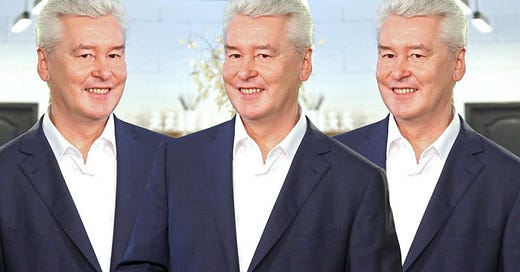



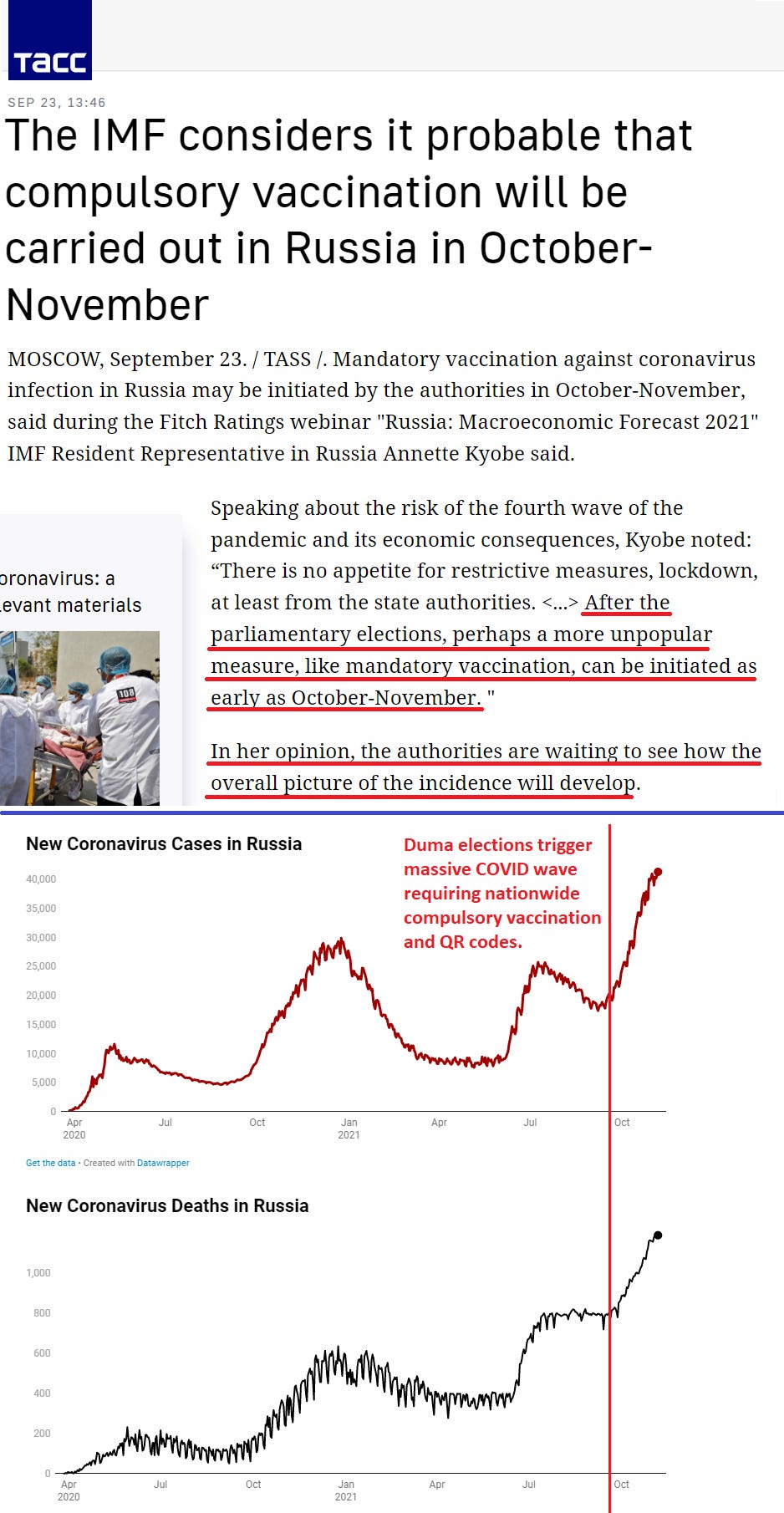

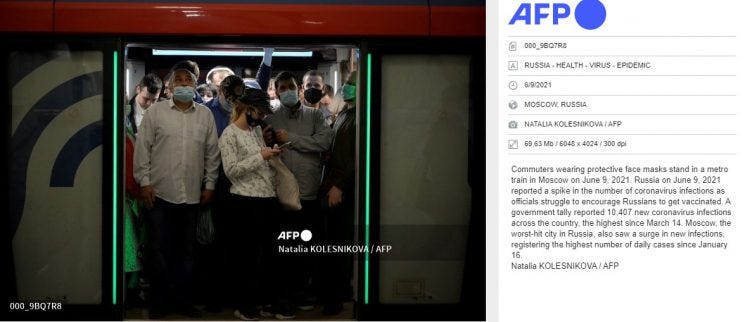
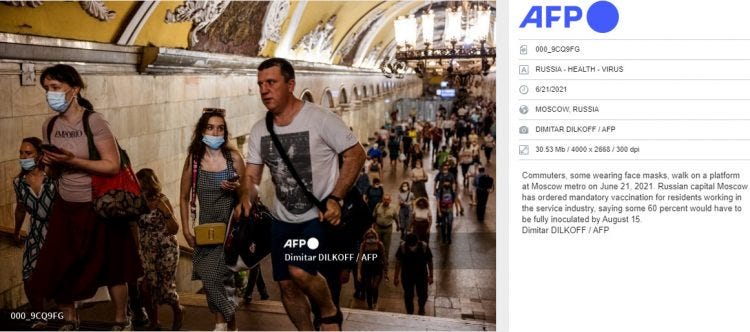

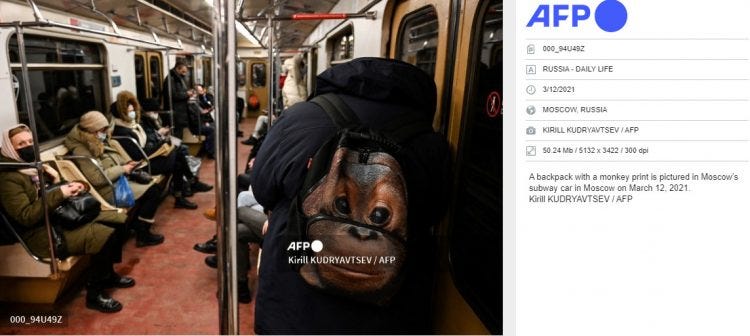







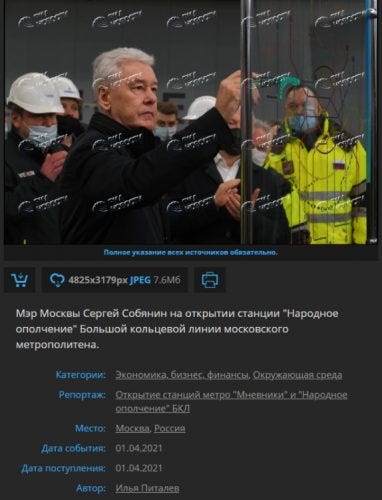
Incidentally this is the latest from a independent community media in Los Angeles about the high rate of strokes/aneurysms they are seeing and the fear among the medical community about not just the vaccines but even talking about potential adverse effects of the vaccine.
https://www.conejoguardian.org/2021/12/14/more-vc-nurses-blow-whistle-on-overwhelming-numbers-of-heart-attacks-clotting-strokes/
I have read a lot of Russian literature old and new. The impression I have from Gogol, Tolstoy, Solzhenitsyn, Bulgakov, Dovlatov etc. is that Russia is a land with many men of incredible talent but they are always led by the corrupt and incompetent. You get the same impression from Russian and Soviet films and my wife speaks ofttimes of Russian corruption. I had thought Mr. Putin was one of those men of incredible talent who was finally in charge. His Sisyphean task was to imbue Russia with a new ethic not based on corruption. Well either he failed or it was never his intent. I would understand if Dima were still in office, but Putin? If he is not in on this global grab for power then he is certainly showing he is not really in control of his country--scary thought.
Yet this is still what I do not understand. If Russia is part of this farce, then why all the western antagonism towards Russia? Is it all Kabuki theater? There is a disconnect somewhere in this very real conspiracy to enslave us.